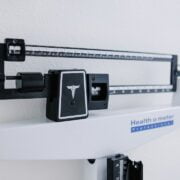
Revamp Your Gut Health with These Essential Healthy Habits
Gut health refers to the overall well-being of the digestive system, including the balance of bacteria and microorganisms in the gut. It plays a crucial role in maintaining overall health and well-being. The gut is home to trillions of bacteria, known as gut microbiota, which help with digestion, nutrient absorption, and immune function. When the balance of these bacteria is disrupted, it can lead to various health issues.
Poor gut health has been linked to a wide range of health problems, including digestive disorders such as irritable bowel syndrome (IBS), inflammatory bowel disease (IBD), and gastroesophageal reflux disease (GERD). It can also contribute to other conditions like obesity, diabetes, autoimmune diseases, mental health disorders, and even certain types of cancer. Therefore, taking care of your gut health is essential for maintaining overall health and preventing these conditions.
Key Takeaways
- Gut health is important for overall health and well-being.
- Incorporating probiotics into your diet can improve gut health.
- Eating a balanced diet with plenty of fiber is crucial for gut health.
- Staying hydrated with water and herbal teas can support gut health.
- Reducing stress, getting enough sleep, limiting processed and sugary foods, regular exercise, and avoiding unnecessary antibiotics are all important habits for optimal gut health.
Healthy Habit #1: Incorporating Probiotics into Your Diet
Probiotics are live bacteria and yeasts that are beneficial for gut health. They help restore the natural balance of bacteria in the gut and promote a healthy digestive system. Probiotics can be found in certain foods and supplements.
Foods that are rich in probiotics include yogurt, kefir, sauerkraut, kimchi, tempeh, and miso. These foods contain live cultures of beneficial bacteria that can help improve gut health when consumed regularly. Additionally, there are probiotic supplements available in the form of capsules or powders that can be taken daily to support gut health.
Healthy Habit #2: Eating a Balanced Diet with Plenty of Fiber
A balanced diet is crucial for maintaining good gut health. It should include a variety of fruits, vegetables, whole grains, lean proteins, and healthy fats. One important component of a balanced diet for gut health is fiber.
Fiber is a type of carbohydrate that cannot be digested by the body. Instead, it passes through the digestive system largely intact, providing bulk to the stool and promoting regular bowel movements. It also acts as a prebiotic, which means it serves as food for the beneficial bacteria in the gut.
To incorporate more fiber into your diet, focus on consuming whole grains, legumes, fruits, and vegetables. Aim for at least 25-30 grams of fiber per day for optimal gut health. It’s important to increase fiber intake gradually to avoid digestive discomfort.
Healthy Habit #3: Staying Hydrated with Water and Herbal Teas
| Healthy Habit #3: Staying Hydrated with Water and Herbal Teas | |
|---|---|
| Recommended daily water intake | 8-10 glasses (64-80 ounces) |
| Benefits of staying hydrated | Improved digestion, clearer skin, better concentration, increased energy |
| Herbal teas for hydration | Peppermint, chamomile, ginger, hibiscus, green tea |
| Signs of dehydration | Thirst, dry mouth, dark urine, fatigue, dizziness |
| Ways to increase water intake | Carry a water bottle, flavor water with fruit or herbs, eat water-rich foods like watermelon and cucumber |
Staying hydrated is essential for maintaining good gut health. Dehydration can lead to constipation and other digestive issues. It’s important to drink enough water throughout the day to keep your digestive system functioning properly.
In addition to water, herbal teas can also be beneficial for gut health. Certain herbal teas, such as peppermint tea and ginger tea, have been shown to have soothing effects on the digestive system. They can help relieve symptoms of indigestion, bloating, and nausea.
To stay hydrated, aim to drink at least 8 cups (64 ounces) of water per day. You can also incorporate herbal teas into your daily routine for added hydration and gut health benefits.
Healthy Habit #4: Reducing Stress through Mindfulness and Relaxation Techniques
Stress has a significant impact on gut health. When you’re stressed, your body releases stress hormones that can disrupt the balance of bacteria in the gut and affect digestion. Chronic stress has been linked to conditions like IBS and IBD.
To reduce stress and support gut health, it’s important to incorporate mindfulness and relaxation techniques into your daily routine. These techniques can help calm the mind and body, reducing stress levels and promoting a healthy gut.
Examples of mindfulness and relaxation techniques include deep breathing exercises, meditation, yoga, tai chi, and progressive muscle relaxation. Find what works best for you and make it a regular part of your routine to support gut health.
Healthy Habit #5: Getting Enough Sleep to Support Gut Health

Sleep plays a crucial role in maintaining good gut health. During sleep, the body repairs and restores itself, including the digestive system. Lack of sleep can disrupt the balance of bacteria in the gut and lead to digestive issues.
To support gut health, aim for 7-9 hours of quality sleep per night. Establish a regular sleep schedule, create a relaxing bedtime routine, and create a sleep-friendly environment in your bedroom. Avoid caffeine and electronic devices before bed, as they can interfere with sleep quality.
Healthy Habit #6: Limiting Processed and Sugary Foods
Processed and sugary foods can have a negative impact on gut health. These foods are often low in fiber and high in unhealthy fats, added sugars, and artificial ingredients. They can disrupt the balance of bacteria in the gut and contribute to inflammation and digestive issues.
To support gut health, it’s important to limit the consumption of processed and sugary foods. Instead, focus on whole, unprocessed foods that are rich in nutrients and fiber. Choose fresh fruits and vegetables, whole grains, lean proteins, and healthy fats.
Healthy Habit #7: Regular Exercise for a Healthy Gut
Exercise is not only beneficial for physical fitness but also for gut health. Regular physical activity helps stimulate digestion and promotes regular bowel movements. It can also help reduce stress levels, which is important for maintaining good gut health.
To support gut health, aim for at least 150 minutes of moderate-intensity exercise or 75 minutes of vigorous-intensity exercise per week. Incorporate a variety of activities into your routine, such as walking, jogging, cycling, swimming, or strength training.
Healthy Habit #8: Avoiding Antibiotics Unless Necessary
Antibiotics are medications used to treat bacterial infections. While they can be life-saving in certain situations, they can also have a negative impact on gut health. Antibiotics not only kill harmful bacteria but also beneficial bacteria in the gut, disrupting the balance of gut microbiota.
To support gut health, it’s important to avoid unnecessary antibiotic use. Only take antibiotics when prescribed by a healthcare professional and follow the prescribed dosage and duration. If you do need to take antibiotics, consider taking a probiotic supplement to help restore the balance of bacteria in the gut.
Putting These Habits into Practice for Optimal Gut Health
In conclusion, gut health plays a crucial role in maintaining overall health and well-being. Poor gut health can lead to various health issues, including digestive disorders, obesity, diabetes, autoimmune diseases, mental health disorders, and certain types of cancer.
To support gut health, it’s important to incorporate healthy habits into your daily routine. This includes incorporating probiotics into your diet, eating a balanced diet with plenty of fiber, staying hydrated with water and herbal teas, reducing stress through mindfulness and relaxation techniques, getting enough sleep, limiting processed and sugary foods, engaging in regular exercise, and avoiding unnecessary antibiotic use.
By putting these habits into practice, you can optimize your gut health and improve your overall well-being. Remember that everyone’s gut is unique, so it may take some trial and error to find what works best for you. Consult with a healthcare professional if you have any specific concerns or questions about your gut health.
FAQs
What is gut health?
Gut health refers to the balance of microorganisms that live in the digestive tract. These microorganisms play a crucial role in digestion, immune system function, and overall health.
Why is gut health important?
A healthy gut is essential for overall health and well-being. Poor gut health has been linked to a range of health problems, including digestive issues, autoimmune disorders, mental health issues, and more.
What are some healthy habits for better gut health?
Some healthy habits for better gut health include eating a balanced diet rich in fiber and fermented foods, staying hydrated, getting regular exercise, managing stress, and avoiding smoking and excessive alcohol consumption.
What are some foods that promote gut health?
Foods that promote gut health include fermented foods like yogurt, kefir, sauerkraut, and kimchi, as well as high-fiber foods like fruits, vegetables, whole grains, and legumes.
What are some foods that can harm gut health?
Foods that can harm gut health include processed foods, sugary foods and drinks, artificial sweeteners, and foods high in saturated and trans fats.
Can probiotics help improve gut health?
Probiotics are beneficial bacteria that can help improve gut health. They can be found in fermented foods or taken as supplements.
What are some signs of poor gut health?
Signs of poor gut health include digestive issues like bloating, gas, constipation, or diarrhea, as well as skin problems, fatigue, and mood disorders.


















